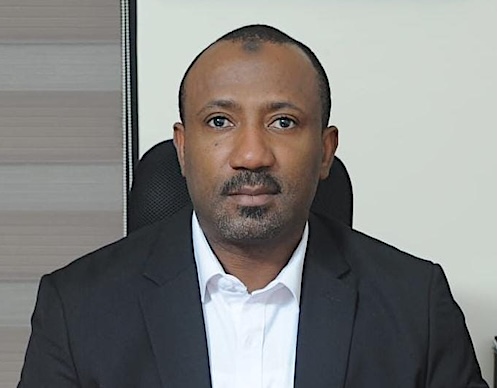
We are indeed losing precious lives, but we are losing them to terrorism, banditry, and communal conflicts fuelled by poor governance, not a coherent government-backed campaign to wipe out one religion. The tragic irony is that the purveyors of this false genocide narrative are often the very ones who refuse to contribute constructively to local solutions, preferring instead to throw stones from their distant glass houses and collect applause from foreign patrons.
Your pride for your country should not come after your country becomes great; your country becomes great because of your pride in it. – Idowu Koyenikan
In 2018, I wrote about the “Nigeria and the Wailing Diasporans.” These highly vocal Nigerians — often failed individuals residing comfortably in Western climes — are now pushing a new, more dangerous evangelism: the narrative of a ‘Christian genocide’ in Nigeria. It’s a simplistic, sensationalist and, ultimately, profoundly damaging label being pushed with missionary zeal, especially on foreign and social media.
Fortunately, the busy ones don’t push such; it’s mostly those who failed in Nigeria and are failing abroad, who consequently wouldn’t mind seeing Nigeria burn. Carl Jung aptly describes such people as those with a ‘resentment and victim mindset’, and the feeling of personal failure has transformed into a deep-rooted resentment of Nigeria. Jung’s analysis portrays such individuals as psychologically distressed, because they are trapped in a cycle of self-destruction and desire for Nigeria to fail, as a defence mechanism to avoid the truth about their unfulfilled desires.
While the gravity of insecurity in Nigeria is undeniable and heart-wrenching, the deliberate framing of this multi-faceted crisis as purely ethno-religious extermination is a distortion that serves political and personal agendas, far more than it serves the truth.
Let us be clear: the senseless killing of Nigerians, be they Christian, Muslim, or adherents of traditional faiths, is a national tragedy. From the Boko Haram/ISWAP terrorists in the North-East to the bandits across the North-West and the deadly farmer-herder clashes in the Middle Belt, violence is a currency tragically familiar to millions.
The simplistic narrative of a ‘Christian genocide’ is profoundly damaging to Nigeria. It inflames divisions, acting as a toxic wedge that deepens the existing ethno-religious fault lines within the country. This makes communal healing and interfaith dialogue exponentially harder, forcing Nigerians to view what should be a shared national security problem strictly through sectarian lens. It also obfuscates the real issues at the heart of the crisis.
But the diasporan echo chamber, often amplified by foreign media houses eager for a convenient, black-and-white narrative, strips this complex reality of its nuances. They take the isolated, yet horrific, attacks on Christian communities — murders of priests, destruction of churches, and abductions — and extrapolate them into a sweeping, state-sponsored genocide. They conveniently ignore the tens of thousands of Muslims, including Imams and traditional rulers, who have also been killed by the same terrorist and bandit groups. They neglect the underlying factors of resource scarcity, climate change, poor governance, and a collapsing ‘criminal industrial complex’ of kidnapping, that is truly indiscriminate in its choice of victims.
For the Wailing Diasporans, they often care less about actual suffering and more about looking like heroes. They are masters of performing as victims to get sympathy in foreign countries. They use such platform to claim they are witnesses in a ‘Christian genocide,’ a dramatic story that sadly appeals to the anti-Muslim feelings of many people in the West.
The term ‘genocide’ is not a mere synonym for ‘mass murder’ or ‘carnage’; it is a legal and historical term that implies a deliberate, systemic, and state-sanctioned endeavour to destroy a national, ethnic, racial, or religious group. To apply it so liberally and incorrectly to the Nigerian crisis is not just intellectually lazy, it is plainly dangerous.
The simplistic narrative of a ‘Christian genocide’ is profoundly damaging to Nigeria. It inflames divisions, acting as a toxic wedge that deepens the existing ethno-religious fault lines within the country. This makes communal healing and interfaith dialogue exponentially harder, forcing Nigerians to view what should be a shared national security problem strictly through sectarian lens. It also obfuscates the real issues at the heart of the crisis. By framing the violence as an exclusively ‘Christian’ problem, it distracts attention from the core failures of the Nigerian State: Widespread public sector corruption, a broken national border security architecture, and the systemic poverty aided by poor sub-national governance across all states, together which truly provide the oxygen for terrorism and banditry. Even international bodies, like the US Agency for International Development (USAID) in its Violence and Conflict Assessment (VCA) framework, confirm that Nigeria’s crisis is rooted in these complex drivers — resource competition, governance deficits, and poverty — not solely on the religious factor.
Wailing is not advocacy; it is poor theatre. Nigeria’s crisis is too profound for such cheap performance and theatrics. Instead of sectarian incitement from those viewing our nation’s agony from a safe distance, we require a commitment to solutions-driven engagements. This means moving beyond rhetoric to demanding specific policy reforms, supporting anti-money laundering policies abroad to starve criminal enterprises, and fostering non-sectarian security initiatives locally.
We are indeed losing precious lives, but we are losing them to terrorism, banditry, and communal conflicts fuelled by poor governance, not a coherent government-backed campaign to wipe out one religion. The tragic irony is that the purveyors of this false genocide narrative are often the very ones who refuse to contribute constructively to local solutions, preferring instead to throw stones from their distant glass houses and collect applause from foreign patrons.
If our Diasporan brethren genuinely care about Nigeria, their energy would be better spent advocating for institutional reform, judicial accountability, and border security reform, amongst a number of other issues, rather than peddling sensationalist, divisive propaganda. They should champion development projects in their hometowns, support non-sectarian security initiatives, and lobby their host governments for anti-money laundering policies that curb the illicit financial flows that sustain the criminal enterprises ravaging Nigeria.
Wailing is not advocacy; it is poor theatre. Nigeria’s crisis is too profound for such cheap performance and theatrics. Instead of sectarian incitement from those viewing our nation’s agony from a safe distance, we require a commitment to solutions-driven engagements. This means moving beyond rhetoric to demanding specific policy reforms, supporting anti-money laundering policies abroad to starve criminal enterprises, and fostering non-sectarian security initiatives locally. We need sober analysis and tangible, non-partisan action that addresses the roots of the crisis, not just the symptoms. Only through this commitment to unity and tangible building can we replace the performance of victimhood with genuine progress.
Umar Yakubu writes from Abuja.












